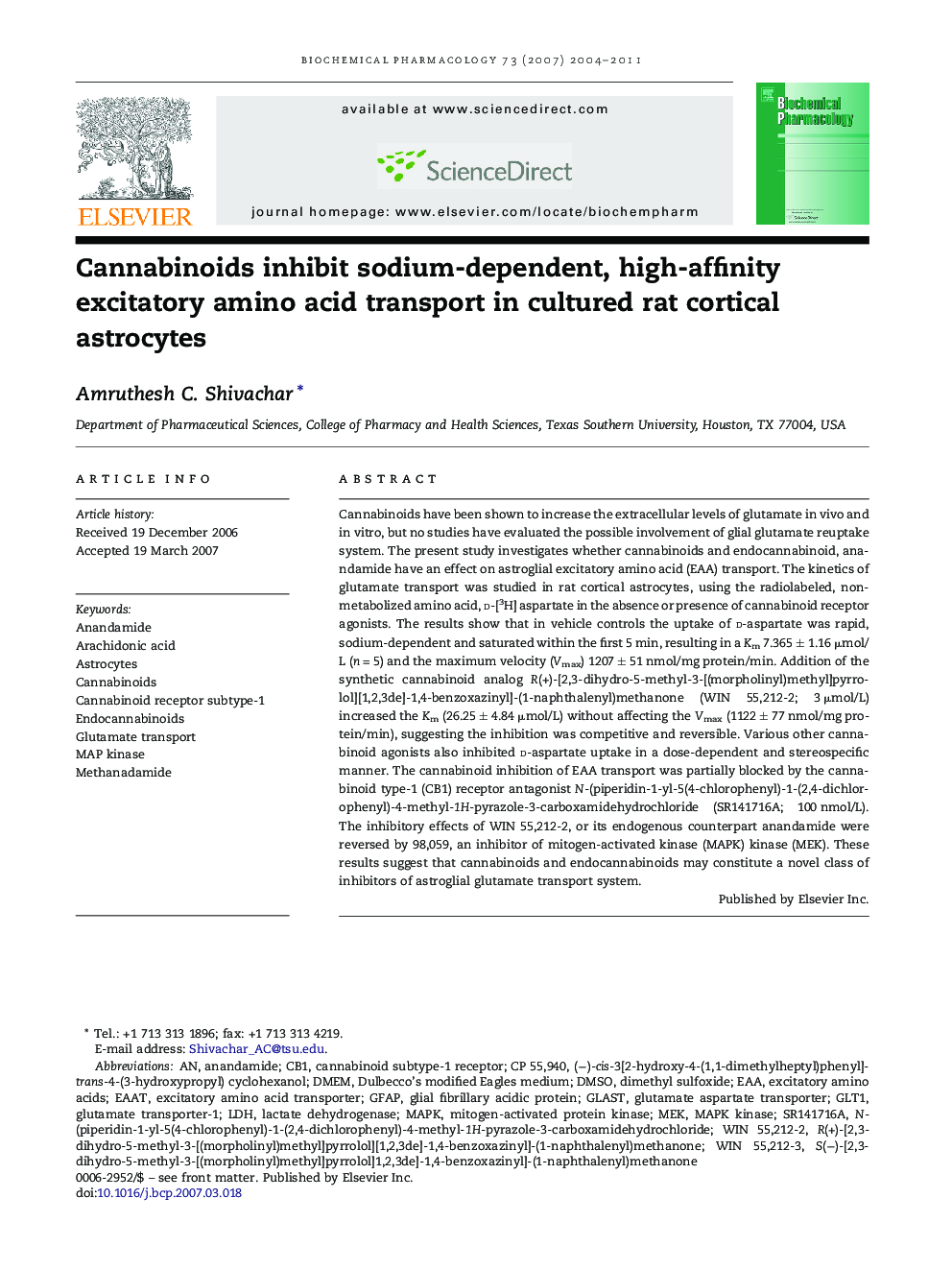| Article ID | Journal | Published Year | Pages | File Type |
|---|---|---|---|---|
| 2514862 | Biochemical Pharmacology | 2011 | 8 Pages |
Cannabinoids have been shown to increase the extracellular levels of glutamate in vivo and in vitro, but no studies have evaluated the possible involvement of glial glutamate reuptake system. The present study investigates whether cannabinoids and endocannabinoid, anandamide have an effect on astroglial excitatory amino acid (EAA) transport. The kinetics of glutamate transport was studied in rat cortical astrocytes, using the radiolabeled, non-metabolized amino acid, d-[3H] aspartate in the absence or presence of cannabinoid receptor agonists. The results show that in vehicle controls the uptake of d-aspartate was rapid, sodium-dependent and saturated within the first 5 min, resulting in a Km 7.365 ± 1.16 μmol/L (n = 5) and the maximum velocity (Vmax) 1207 ± 51 nmol/mg protein/min. Addition of the synthetic cannabinoid analog R(+)-[2,3-dihydro-5-methyl-3-[(morpholinyl)methyl]pyrrolol][1,2,3de]-1,4-benzoxazinyl]-(1-naphthalenyl)methanone (WIN 55,212-2; 3 μmol/L) increased the Km (26.25 ± 4.84 μmol/L) without affecting the Vmax (1122 ± 77 nmol/mg protein/min), suggesting the inhibition was competitive and reversible. Various other cannabinoid agonists also inhibited d-aspartate uptake in a dose-dependent and stereospecific manner. The cannabinoid inhibition of EAA transport was partially blocked by the cannabinoid type-1 (CB1) receptor antagonist N-(piperidin-1-yl-5(4-chlorophenyl)-1-(2,4-dichlorophenyl)-4-methyl-1H-pyrazole-3-carboxamidehydrochloride (SR141716A; 100 nmol/L). The inhibitory effects of WIN 55,212-2, or its endogenous counterpart anandamide were reversed by 98,059, an inhibitor of mitogen-activated kinase (MAPK) kinase (MEK). These results suggest that cannabinoids and endocannabinoids may constitute a novel class of inhibitors of astroglial glutamate transport system.
